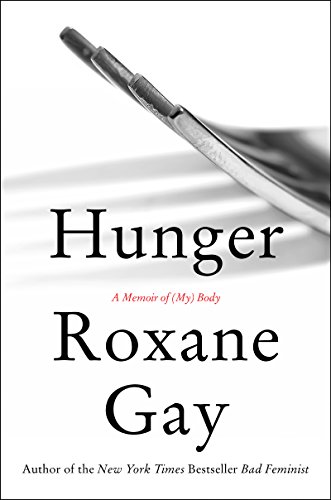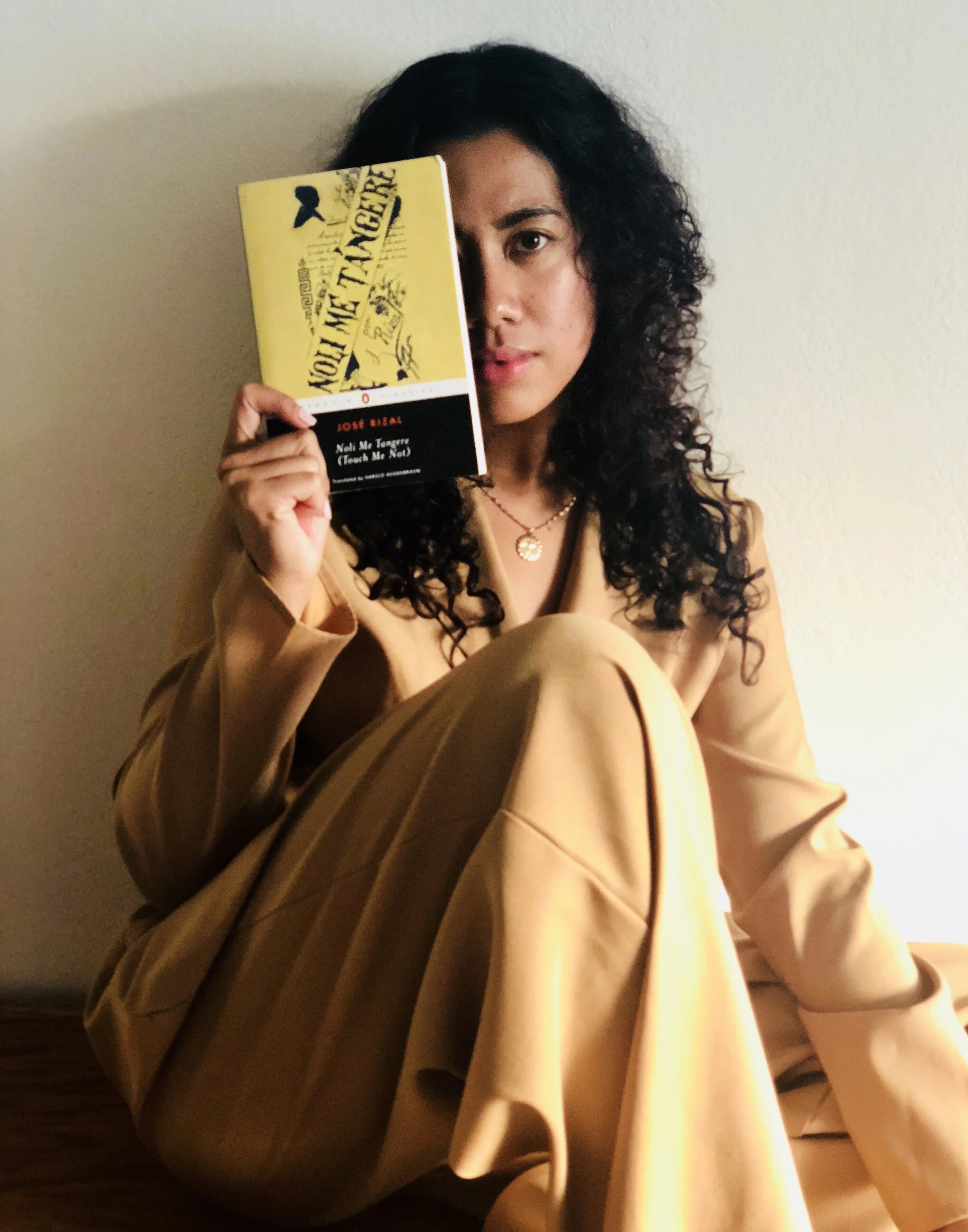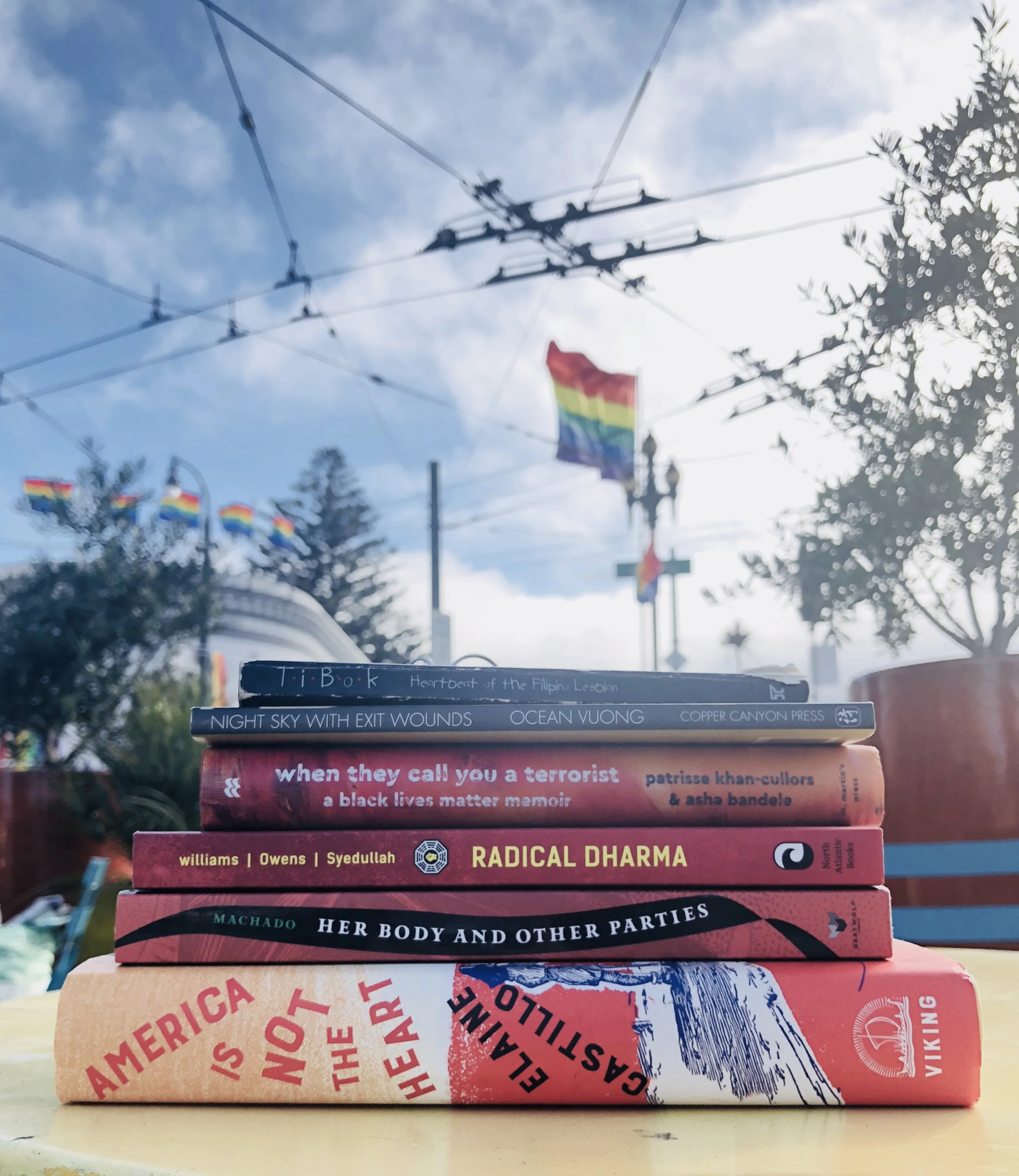#GetLit This Holiday: A Literary Guide to Filipino Family Parties
You ready for another Filipino family party?
With the end of 2k17 just around the corner, you know there’s bound to be an endless supply of pancit, lumpia and possibly (hopefully), lechon. Not to mention all the do-do’s as my family calls ‘em: asado (stewed pork or chicken dish), menudo (another stewed pork dish), embutido (the Filipino version of meatloaf). You know, the works.
The food will be plentiful no doubt, slowly settling in the nearest chair or corner as family, friends and relatives trickle in, as Jep Paraiso describes hilariously in Filipino Titas on Thanksgiving/Christmas be like…series. I don’t know about you but I’m still *reeling* from those videos, grateful for the laughter welling deep in my belly. Filipino titas (aunts) can cause quite a ruckus and I find it mildly comforting that his tita impressions are not only spot-on, but almost universal.
But what is most profound to me is that in the midst of his wittiest quips were inestimable kernels of truth, a window to the Filipino consciousness. That in a span of a minute, Paraiso was able to give the world a glimpse of our complexities and idiosyncrasies as a people. I guess there’s nothing quite like an effective use of humor to induce a little self-examination, no matter how uncomfortable it may be.
What the videos reveal are issues in our communities rooted in the same things that have continued to oppress us for generations; that what we consider as usual banter is actually harmful, hurtful in ways that have prompted us to toughen up. The last thing you want to think of is a Filipino family party turned into a battlefield, a space where you have to learn how to duck lest an off-color remark is hurled your way.
So what is there to do? Culture cannot change overnight. For as long as our lens of what is good and what is bad as a people is colored by Eurocentric ideals, we remain at the mercy of a plate of pancit and lumpia, dodging that one no-filter tita. But fortunately for us, we have gentle teachers at our disposal, amiable fellows to aid us in our journeys of self-inquiry--books.
Below are five contemporary titles I’ve chosen attuned to things I’ve picked up from the videos. These books have been heavy on my mind this year, and I’ve been constantly recommending them to colleagues, friends, and family members in search of narratives of strength, courage, and integrity. They are the work of queer people and women of color, voices that bring hope and light in these necessary conversations.
Hunger: A Memoir of (My) Body (2017)
On body-shaming, fat-shaming:
Ever had an experience where the first thing your family members comment on when they see you is your weight? Whether you’ve lost or gained more pounds? It isn’t really the kind of warm welcome you were expecting but as soon as you walk through the door, you can’t help but be subjected to it. When I read Hunger by Roxane Gay this year, I was reminded of the ways not just Filipino families, but our society as a whole, view our bodies and scale them up. Women’s bodies bear the brunt of intense scrutiny the most. The size of our bodies become standards for desirability, or objects of either admiration or ridicule. Hunger is Gay’s personal account of living in her body, interspersed with the many ways she’s struggled and triumphed in a weight-obsessed culture.
Sing, Unburied, Sing (2017)
On anti-blackness:
While Filipinos are known for their hospitality, I was reminded by the videos that there is still an undercurrent of anti-blackness in our communities. Our people have internalized centuries of colonization so deep that White is Right has been ingrained, massaged in our memory. Sing, Unburied, Sing by Jesmyn Ward is a haunting, beautiful read about a black family in rural Mississippi, a story of deep love within a family in the face of life’s greatest challenges. How a family ravaged by death, drugs and racism continue beyond their hardest moments to find joy and beauty in each other. It reminded me of the ways Filipino families take care of each other in the midst of the hardest struggles, how we choose and find the world in each other.
The Heart’s Invisible Furies (2017)
On queerness:
Your best friend or roommate forever AKA your partner would probably be comforted with the mention of John Boyne’s The Heart’s Invisible Furies, an indispensable read on queerness, family and religion. Set in Ireland, it is the story of a young man living through an era of extreme homophobia, in a country where Catholicism is king. Boyne chronicles the struggle of trying to survive a world that is against you, of trying to live as freely and truthfully as you can. Being Catholic or religious is still a cornerstone of many Filipino families, and The Heart’s Invisible Furies is a resonant story of navigating tradition and heteronormative norms in its most genuine form.
Little Fires Everywhere (2017)
On families:
No two families are the same, and while Filipino families have quirks that we’ve all become accustomed to, I wanted to bring up Celeste Ng’s Little Fires Everywhere which explores the breadth of differences between families. In the book are different kinds of families: a single mother trying to raise her daughter, a mother trying to hold a large family together, childless couples hoping to raise their own, the joys of chosen family. This book is a conscientious tale of mothering, of the struggles of raising a family, even of pregnancy. It magnifies differences, but also bridges them in the pursuit of learning how to love even the hardest part of ourselves.
Pachinko (2017)
On the role of women:
Bless all titas in the land, to be honest. In spite of the issues I’ve listed here, and how we’ve come to really understand the Filipino psyche, it is without a doubt that women are the bedrock of any family. I thought of Min Jin Lee’s Pachinko, the story of a Korean woman living at the height of imperial Japan, who has endured many things and whose lineage has always carried the burden of suffering. It is a virtuous story of the woman’s lot, and the ways women carry their families beyond trauma, beyond generations.
These titles are not only great to bookend the year with, but also function as holiday gift recommendations to those who are curious, those who are interested in understanding ourselves, each other, and the world better. After all, we need a little more prodding within so we can be gentler on each other. And instead of trading light-hearted barbs at the next Filipino family party, think of tenderness. It’s the best way to #GetLit.
Pia Cortez
INSTAGRAM - WEBSITE
PRONOUNS: SHE/HER
Pia Cortez is a Bay Area-based community organizer and the creator of Libromance, a blog dedicated to book reviews and literary features with a queer Pinay immigrant perspective. She believes in the power and beauty of the written word: how stories stretch time and transcend boundaries, how books simultaneously challenge and console, how reading becomes an act of resistance. Pia hopes to transform reading from a solitary pursuit and turn it into a tool for community-building, a catalyst for ruckus-raising. When she’s not currently reading the world, she’s experimenting with #booklooks, a play on books and fashion.




















